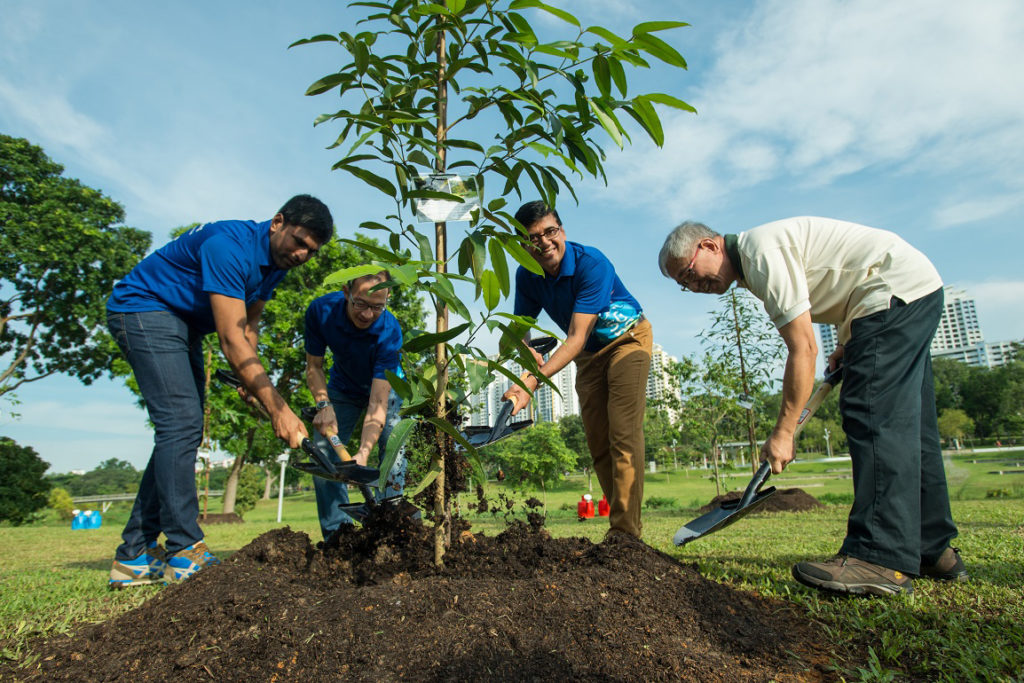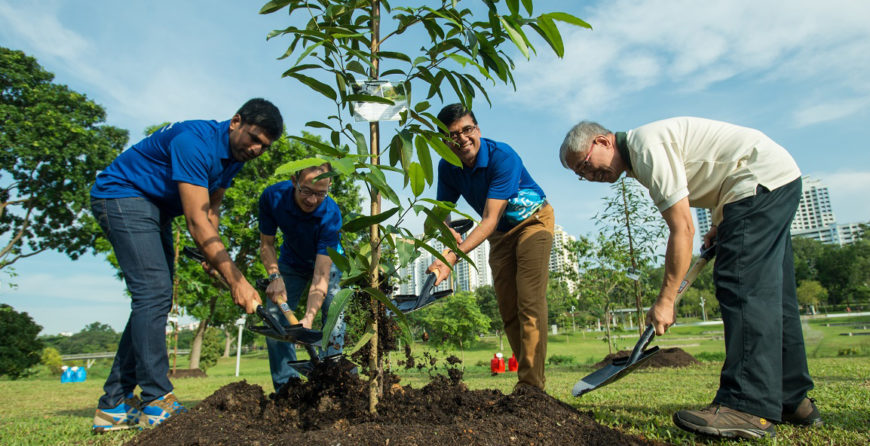How do I plant a tree?
There are many valuable additions you can add to your home. Hopefully you are lucky and buy into a property that already has existing trees, as they can add value to your home. They can cool your home and neigbourhood, block the cold in the winter and lower your heating bills while offering sanctuary and food to wildlife.They are also important for communities also. Trees can increase the value of a property by %15 and increase the potential of selling the home.
There are amazing things that trees provide for any environment:
- Bring birds of all shapes and sizes and provide food and shelter for them
- Bring natural beauty to any landscape
- Increase oxygen levels while decreasing carbon dioxide
- They are excellent at reducing energy bills, as they cool a home in summer and block cold in the winter
- Trees improve the quality of water

HOW TO PLANT A TREE THE RIGHT WAY
If you are interested in planting a few trees on your property, but aren’t sure how. There are plenty of books out there that can give you step by step instructions on how to. Remember that yes it can easily be a DIY project, but it is recommended to use a professional arborist.
- Make a wide hole around the trunk
- Make sure to test the drainage of the area called a “perk test”
- Have your tree root ball ready
- Place the root ball in the whole and fill it with soil
- Poor over some water to settle the soil
- Add mulch on the surface
Most trees are planted incorrectly according to professional arborists, usually the tree is planted far too deep. When the root ball and the flare are under ground, circulating roots can choke the trunk and this then tightens the nutrient flow and ultimately weakens the tree, rendering it weak and in danger of toppling over. Similarly, a common mistake is when the soil is packed too tight on the trunk, this creates moisture issues and leaves the bark perpetually moist and causes growth issues, sometimes even stunting. Trees that have been buried to deep can be fixed using an air spade, but the ideal is to do it right in the first place.
WHEN IS THE BEST TIME TO PLANT A TREE?
Many experts would agree that fall time is a good time to plant trees because of the moderate temperatures and atmospheric moisture which gives them a chance to grow a stable a strong root system before the dry hot summer. Spring will also do well, depending on the climactic characteristics of the region you live in.
GETTING THE RIGHT SIZED HOLE
To make your hole, it’s suggested that you should measure the root ball first and then dig your hole, as your hole should generally be the same depth as your root ball. Always avoid planting a tree in glazed holes , like holes created by spades , unless they are damaged during planting. These holes can stop your roots from spreading out and cause an improper development of the roots.
PROPER DRAINAGE
Proper drainage is a crucial part of proper planting a tree, so it’s important to get this part right. To test, simply fill your hole with water and check it the next day. If the water is still there and hasn’t been absorbed by the surroundings, then there is a drainage issue. You can either add some extra drainage, or pick another site. PVC is often a method that works, you set it in the gravel from the hole you made to a lower area on the site. Differently, you can have a pier hole dug from the base of the hole into a different area that has gravel or other draining material in it. When the drainage is properly achieved, then and only then is it ready for a tree to be panted..
PREPARING YOUR ROOT BALL
When trees come in burlap, it’s a good idea to leave the burlap on for planting, you have to loosen it at the truck and take it off the top of the ball. Take off any plastic, twine or wire as these materials do not decompose and will cause problems at the roots as it grows. If you happen to have a tree that is in a plastic container, remove it from the pot and cut it out if necessary. Sometimes the roots will press up against the side of a plastic container, in these situations, you can tear through the roots and guide them to an outward direction. The rule of thumb is 9” of root ball for 1” of trunk diameter. If your tree comes in soil, take a spade and take off any excess soil off as well as the twisted roots that create that birds nest.
SETTING IT IN PLACE
Drop the root ball into the hole, you should fill it the extra spaces with the soil you have dug out, a few extra rocks are ok. There is no need to add fertilizer, sand or soil from an other area as to get a good kickstart to their life roots ned that have native soil from the beginning.Be sure to not have planted to deep, the trunk in its entirety should be above the soil level. It’s far better off to have planted a tree too shallow than too deep, as you don’t want to have the roots not have any circulating air and there will be settling.To settle the areas soil, you should only use water and not stomp on it with your feet, this will only create air pockets and ultimately kill your roots. Use water to do this job.
MULCHING
Mulching a tree is the final step in the process. The key is to have an inch of compost and tree of mulch. A tapered mulch level is what you should be going for, so the layer of mulch should get deeper the further from the tree you go. Make sure to not plant any grass over the tree ball before it has been established.Planting a tree will add so many benefits to your property, they will be there for years to come and add elegance a grace to any property, this is why it’s important to get them in the ground properly from the beginning so that they can establish a solid root system giving them the base they need for the years to come.


